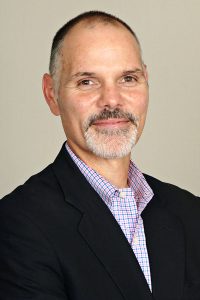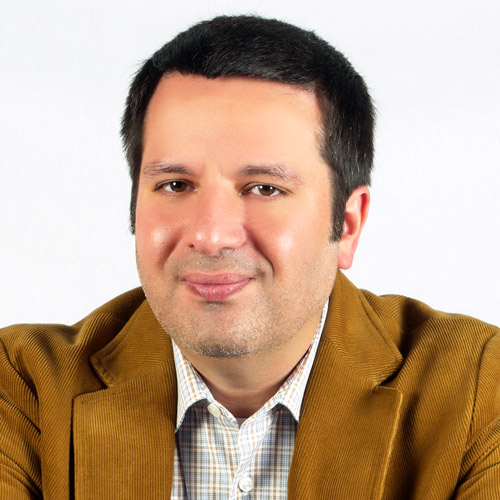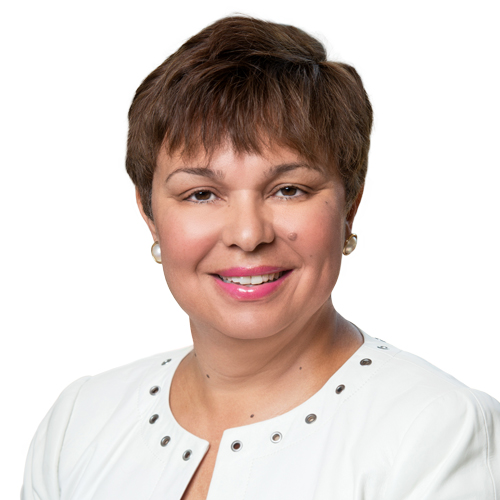
Juan Valdes is a first-generation American. Like many others, his parents fled Cuba after the Castro administration gained power in the 1960s. His mother’s parents saved and sold whatever they could to get out of the country. The family relocated to Miami and started from scratch. His parents worked whatever job they could get, despite being highly educated, in order to make enough money to keep the household running.
He remembers his family’s horrific stories about what happened to friends and family back in Cuba. They all struggled to make a better life in a new country, and it really stuck with him. “You have to have the ability to adapt and succeed to grow,” Valdes says. “We didn’t have a lot growing up, but we had the energy and the bond to say it’s going to work out. We’re going to figure it out.” And it’s that same triumph over struggle that attracted Valdes to Delicato Family Vineyards in 2015.
The Indelicato family, with roots in Sicily, has been growing grapes in California since 1924, during the Prohibition Era. The family adapted to the environment, which allowed for the production of grapes for home winemaking; they took full advantage of this. They found a way to adapt and succeed, Valdes says. They were constantly asking what could be done to keep moving forward. When prohibition ended in the early 1930s, the Indelicato family, who were experts in growing high-quality grapes, started making wine. Over the course of the next eighty years, the family has continually moved forward with and adapted to changing market conditions.
Today, Delicato Family Vineyards is the sixth largest producer of wine in the United States, with vineyards in various regions of California, including Napa, Monterey, and Lodi, offering a complete range of nationally recognized brands.
Through all of this, family values still dominate the core culture of the company. The company is being run by its third-generation owners, with active participation from many family members. As the controller and vice president for Delicato, Valdes looks to his own family for clues on how to manage the finances at Delicato.
“The values that guide me at home are the same things that guide me in the office,” he says. “There’s a commitment to help each other here. It’s not about trying to compete with each other or break each other down. It’s about how you hold each other up and make the most of the situation at hand.”
Before joining Delicato Family Vineyards, Valdes worked in various finance roles at global spirits company Bacardi. He joined the company in 2000 because he identified with its brands, heritage, and family values. Valdes has fond memories of seeing the iconic Bacardi bottle, originally a Cuban brand, in his house growing up—it was a connection to the country his family fled years before. Despite being one of the world’s largest privately owned spirits company, Bacardi held true to its family values. That dedication is what he brought to and brought him to Delicato. He learned how to treat employees like family, and not just a number or an asset.
“People aren’t assets, things to be used and exploited,” Valdes says. “People are people. You have to treat people with respect and dignity to help them succeed. Find ways to lift them and rally around the goals they are trying to achieve.” He says this is one of the biggest challenges in any company: finding the right environment to motivate people to work together toward a common goal.
The owners of Delicato believe it is important to maintain a family-style work environment, especially as the organization expands. The family philosophy includes trust, honesty, approachability, and open-mindedness, all of which make for a great place to work. CEO Chris Indelicato is always looking ahead and thinking of ways to keep Delicato moving forward, Valdes says, which parallels to what Valdes’s family did when they moved to the United States.
“You have to have the ability to adapt and succeed to grow. We didn’t have a lot growing up, but we had the energy and the bond to say it’s going to work out. We’re going to figure it out.”
Juan Valdes
Education has been the number one driver in Valdes’s success. His parents and grandparents instilled in him the importance of education from a young age. His grandfather was a mathematics professor; he was a person that Valdes respected, loved, and looked up to. Fondly enough, math plays into Valdes’s current accounting and finance background. He loved math from a young age, and he always aspired to be more, to do more. “I wasn’t sure where math would lead me, but I knew I loved it and it would take me down the right path,” Valdes says. “There were times early on in my college career when I was tired and thought of giving up; my grandmother told me I had to stick it out—that I committed to it and I had to do it. It was that wake-up call that caused me to dig deep down and say I can do it. To this day, being able to work hard, make it through college, and complete a master’s degree paved the road for me—and it’s something I can pass on to my team at Delicato and to my kids.”
Valdes hopes his son and daughter learn to never give up. He has a saying he’s adapted from sports that many people will recognize: “Don’t lie, don’t cheat, and don’t steal.” He believes these values are a key in how he operates with his team at Delicato. These values, along with an open mind, allow the team to focus on doing their best in an open, constructive environment. If something goes wrong, identify the problem, and then everyone works together to figure out a solution.
He tells the younger first-generation Latin Americans to be proud of where they come from and always prize education. He tells them not to run from their heritage or hide it. Though this has been a challenge for him, Valdes says he never forgets his background and his family. “Don’t judge me because of where I come from or what I look like; judge me for what I am and what I do,” Valdes says.

